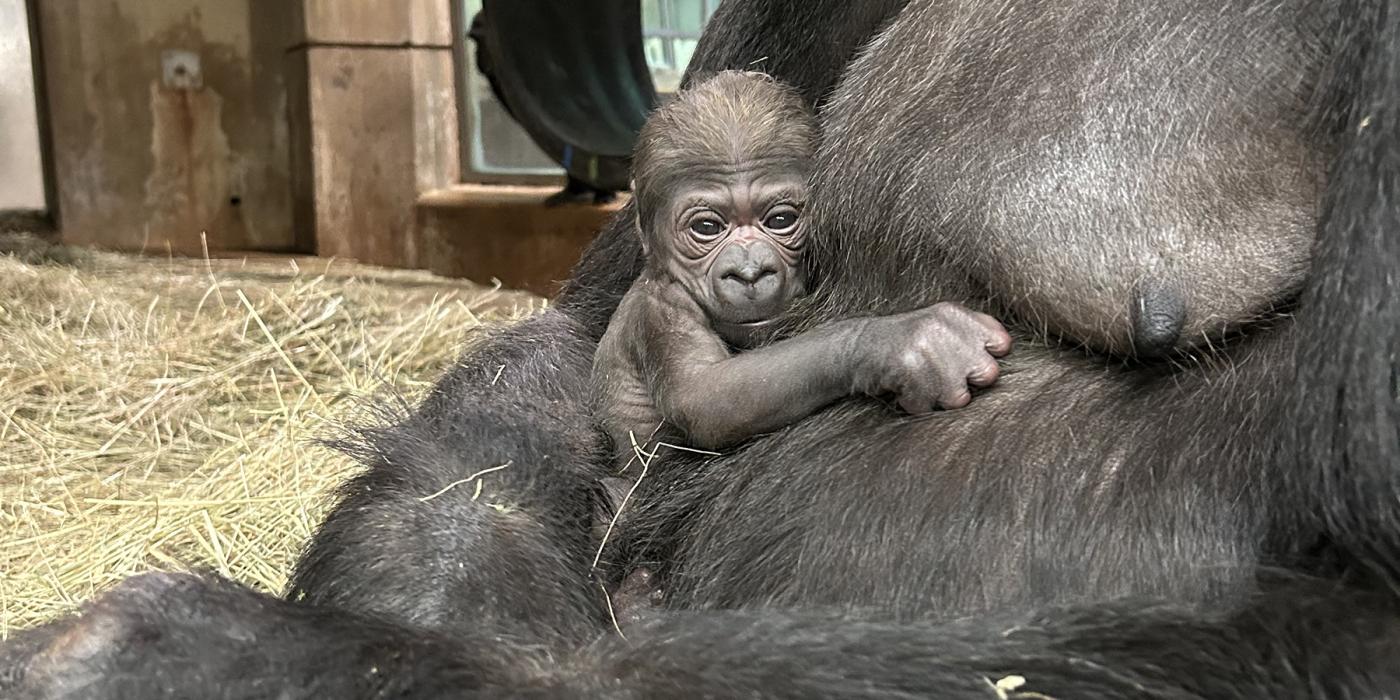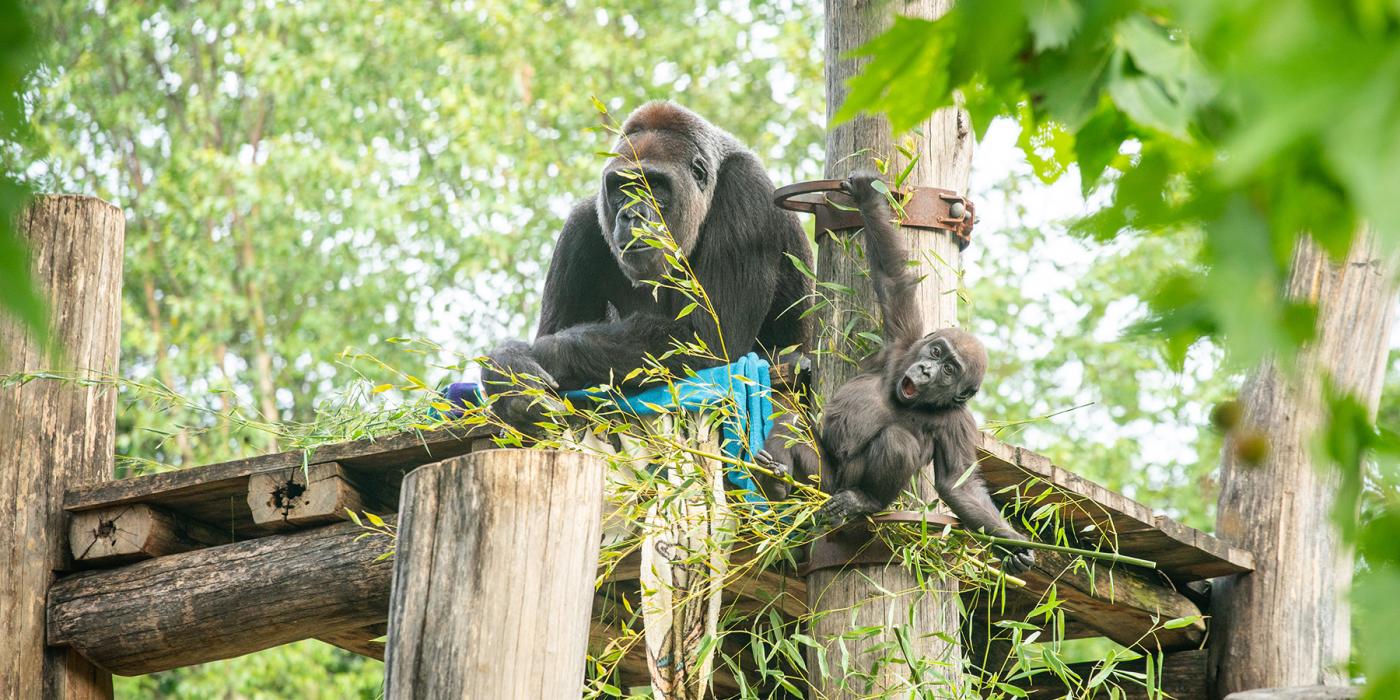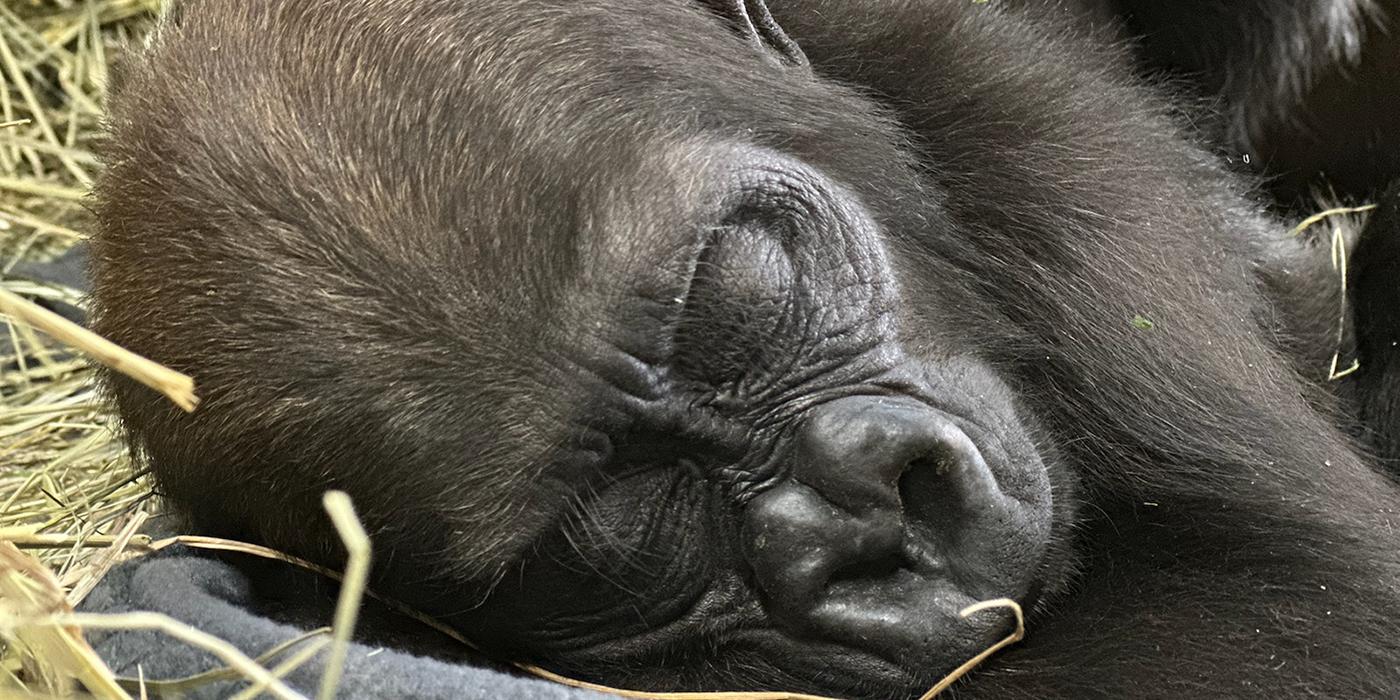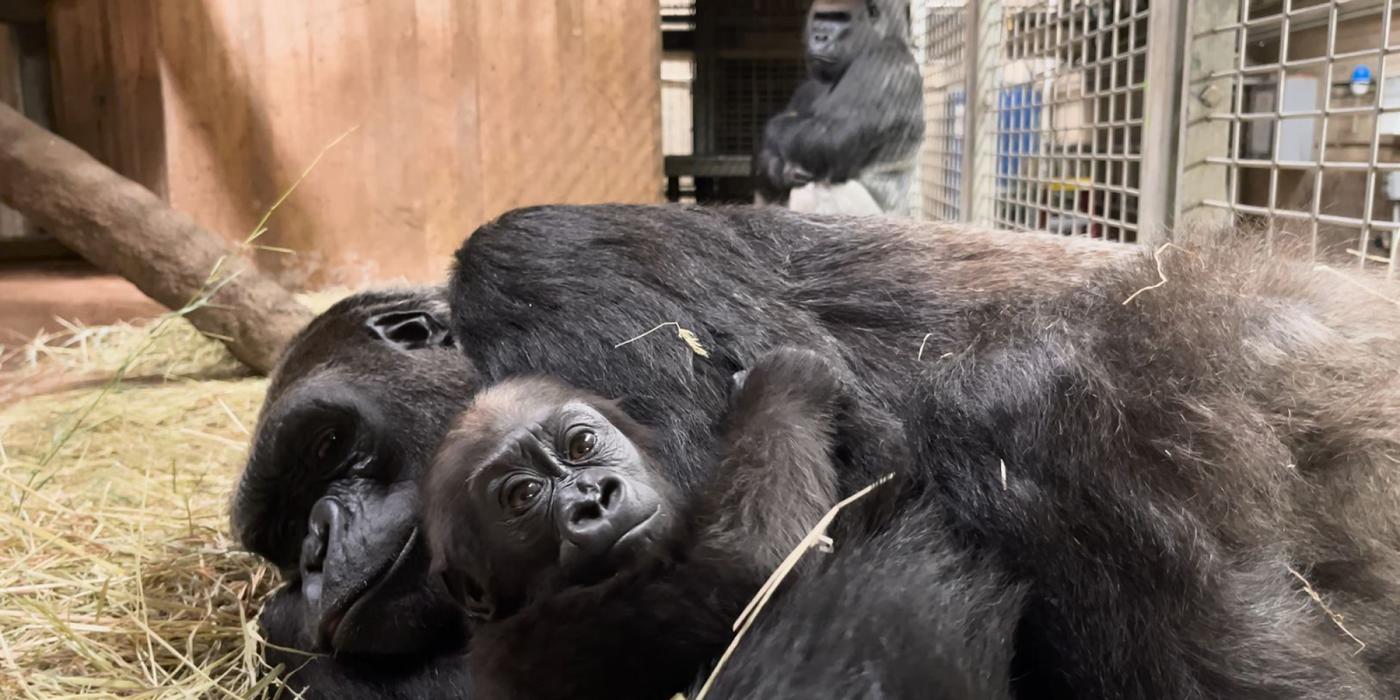#GorillaStory: Happy First Birthday, Zahra!
One year ago, our Primate team celebrated the much anticipated birth of a western lowland gorilla. She was born overnight to mother Calaya and father Baraka and instantly became the center of her troop’s attention. This adorable baby drew the curiosity of big brother Moke, who poked his little sister and patted her on the head—always under Calaya’s watchful eye—and of Mandara and Kibibi, who observed her from a distance.
Western lowland gorilla infant Zahra spent the weeks after her birth clinging tightly to her mother, Calaya.
Days later, the public helped us pick the perfect name for her: Zahra, meaning “beautiful flower” in Swahili. Today, we are celebrating her first birthday with a wildflower-themed party, complete with a decorative banner, a frozen fruitsicle cake and colorful enrichment boxes filled with popcorn, sunflower seeds and other favorite treats.
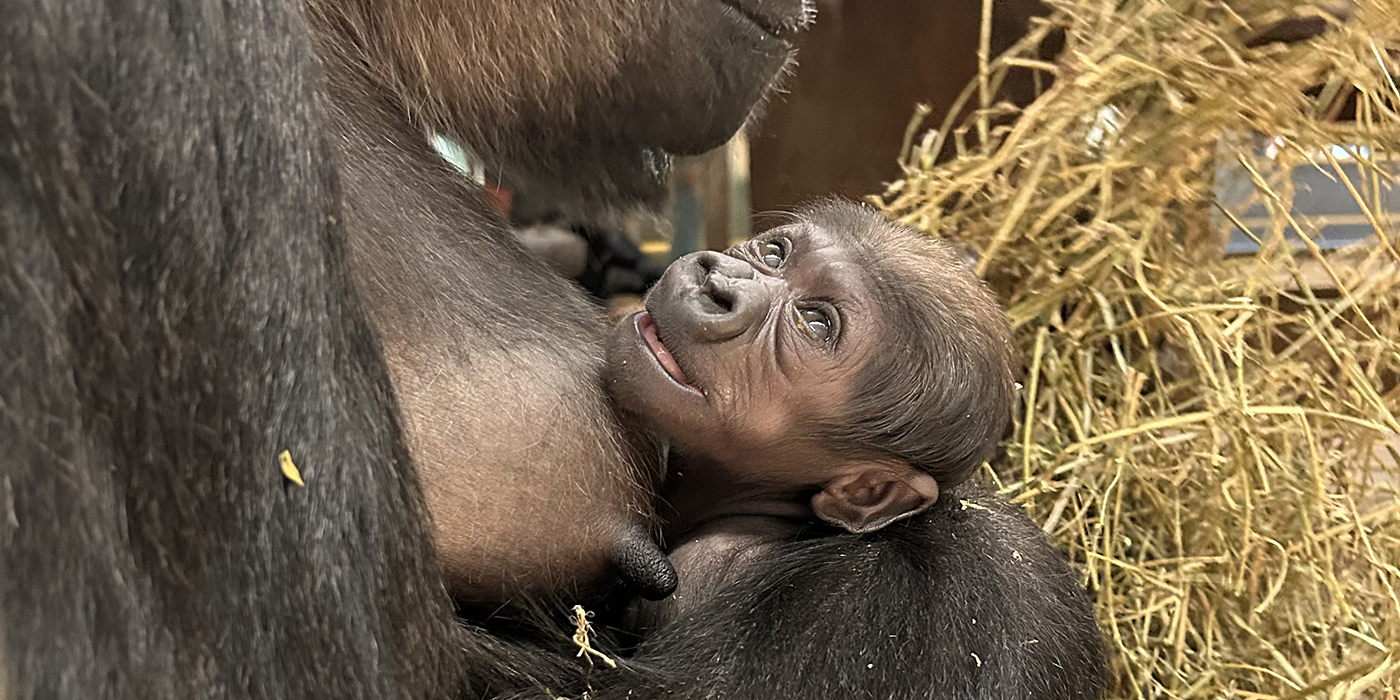
June 7, 2023 | Zahra lays in her mother Calaya's arms, looking up at her.
Since our last update, Zahra has continued to explore her surroundings and become more independent. Lately, she has shown a lot of interest in the climbing structure in the gorillas’ outdoor habitat, and the hammocks that are attached to it. Now, she is big and strong enough to climb in and out of the lower hammock on her own. On the ground, Calaya will allow Zahra to go a fair distance—about 10 to 15 feet away.
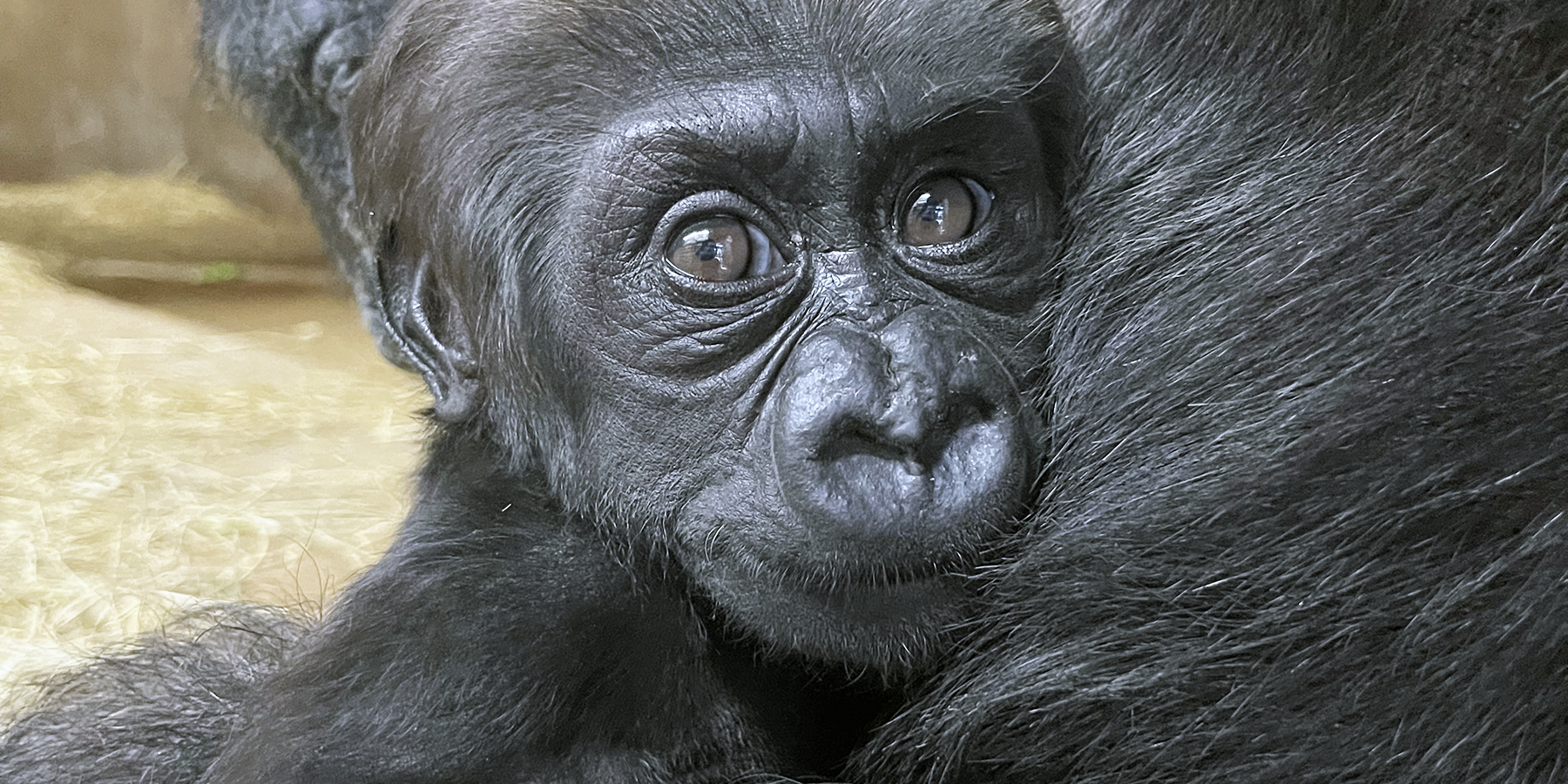
July 22, 2023 | At two months old, Zahra reached a big milestone. She had two teeth! Keepers observed her her sucking on her fingers and thumbs—all signs that she was teething.
Recently, I was excited to witness a few brief interactions between Zahra and Kibibi, who has been very patiently waiting for this opportunity. Kibibi’s tactic is to sit as still as possible in the vicinity of Calaya and Zahra, who cautiously approaches. Naturally, she is a bit tentative because they don’t know each other well. That said, Zahra has reached our and touched Kibibi a few times, and Kibibi has gently reciprocated. I am looking forward to seeing their relationship develop.
Aug. 31, 2023 | At 3 months old, Zahra hadn’t quite figured out how to crawl, but she wiggled around and tried her best. When Calaya let her sit on the ground, Zahra would try to pick things up like hay and alfalfa to investigate—mostly by putting them in her mouth.
When it comes to exploring new things, Zahra is cautious at first. But once she is familiar with that thing and is comfortable, she can be fearless. She has a feisty side to her personality that reminds me of Calaya. The other day, I was feeding Calaya peanuts when I heard Zahra let out a quiet bark, as though she wanted one, too. So, just like her mother, she is not afraid to express her thoughts!
Sept. 22, 2023 | Just shy of turning 4 months old, Zahra practiced walking! Keepers observed her walk around the outdoor habitat while the rest of the troop foraged for breakfast. Calaya allowed Zahra to get a few feet away before she scooped her back up.
Zahra is very social. She is always watching the other gorillas closely and seems interested in interacting with them. This is especially true when it comes to her big brother. Unlike Kibibi who sits still and patiently waits, Moke doesn’t have great impulse control. He seems to have an insatiable desire to play with her, and Calaya allows him the opportunity to do so more than anyone. Sometimes, he will try to grab Zahra and run away, but Calaya always promptly gets her back.
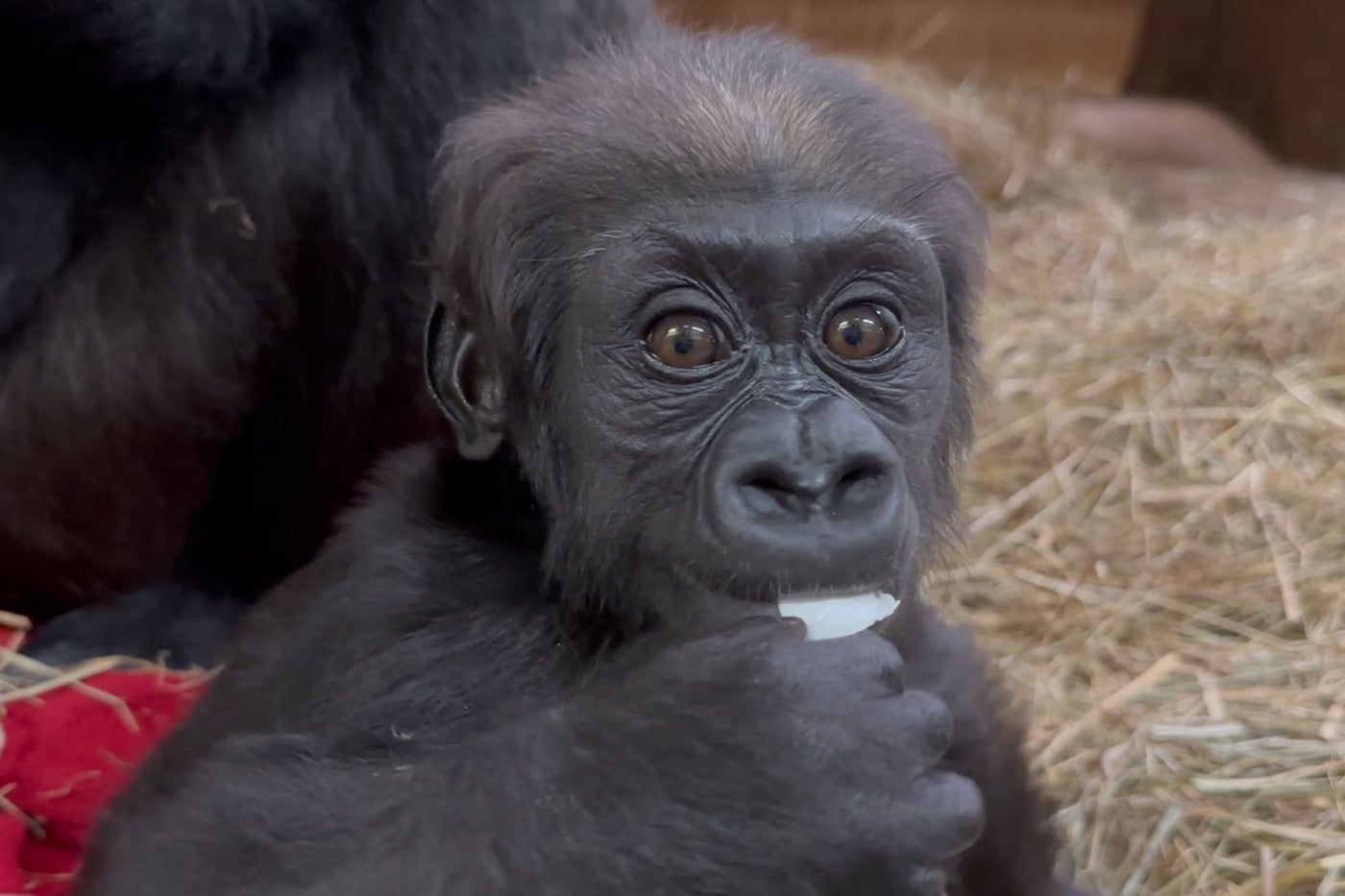
Nov. 17, 2023 | At 6 months old, Zahra’s primary diet was Calaya’s milk, though she had already started eating some solid foods, including vegetables, tomatoes and primate chow. If Zahra could get her hands on a food item, she would try it. However, it was up to Calaya what she actually got to keep and savor.
Of course, Zahra’s relationship with Calaya is the closest of all. Calaya is a wonderful mother, but like all gorilla moms, she will steal food from Zahra if it’s something that she really wants to eat. She did that with Moke, too, and Mandara did that with all of her offspring. So, if there is a food Zahra wants to keep for herself, she has to shove it in her mouth quickly or hold on to it tight.
Zahra—and all of our gorillas—are wonderful ambassadors for their counterparts in the wild. Raising awareness about this species is more important than ever, given that the International Union for Conservation of Nature considers them to be critically endangered.
Dec. 15, 2023 | Seven-month-old Zahra snacks on some veggies!
In their native countries of Gabon, Central Africa Republic, Cameroon, Angola, Equatorial Guinea and Democratic Republic of the Congo, western lowland gorillas face many challenges. Their survival is threatened by disease (the Ebola virus), hunting (for commercial bushmeat) and deforestation (for logging and mining). In the past 25 years, their population has declined by more than 60%.
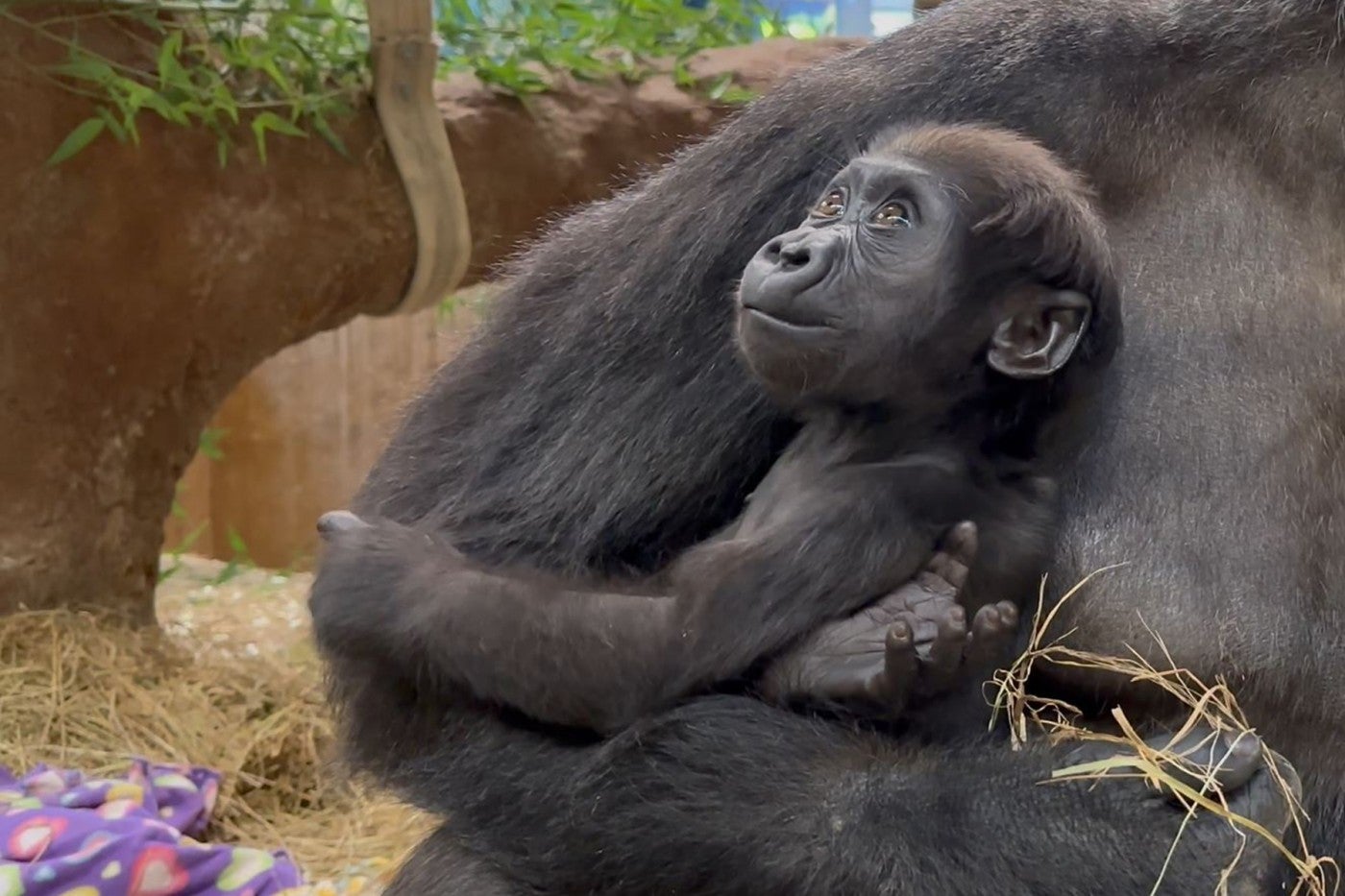
The good news is that you can take action today to help save this species! Share Zahra’s story, and help raise awareness about these gentle and good-natured animals. Taking small actions—think reduce, reuse, recycle—can make a big difference in the lives of Zahra’s wild counterparts.
For instance—did you know that recycling your electronics can help save gorilla habitat? It’s true! One of the metals inside electronic devices that can be recycled is called coltan. It is heat-resistant and can hold a high electrical charge. And, it is mined where gorillas live in the Democratic Republic of the Congo. Recycling electronics can greatly help reduce the need for more expansive coltan mining. You can research online and find places to recycle those cell phones, laptops, cameras, gaming consoles, hearing aids and GPS navigation systems that you’re no longer using.
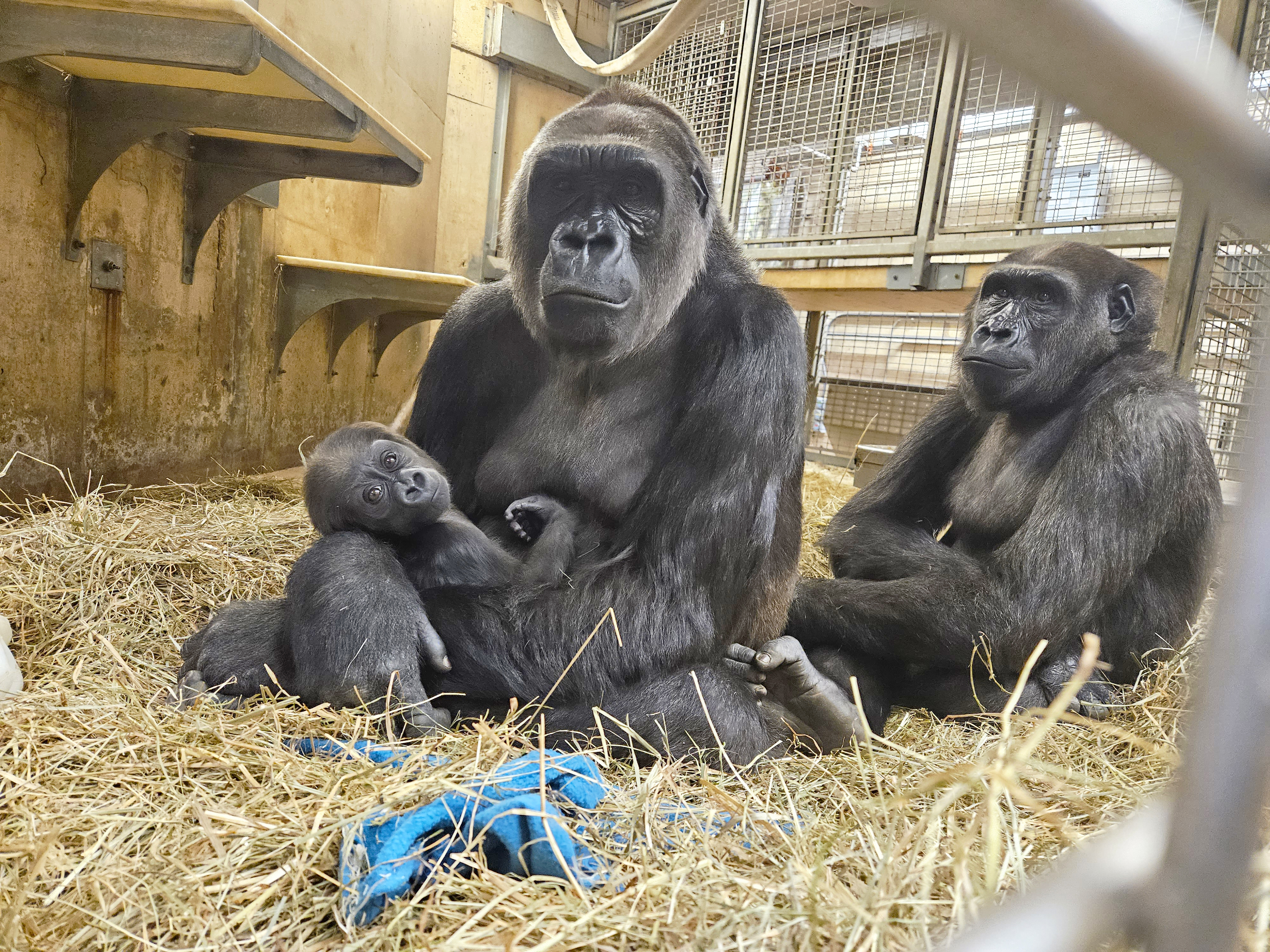
Contributing to a healthier planet for all wildlife would be an excellent way to show our appreciation for these truly great apes, today and every day!
This story appears in the June issue of National Zoo News. Read previous #GorillaStory updates on Zahra, Moke and their troop here.
Related Species:
